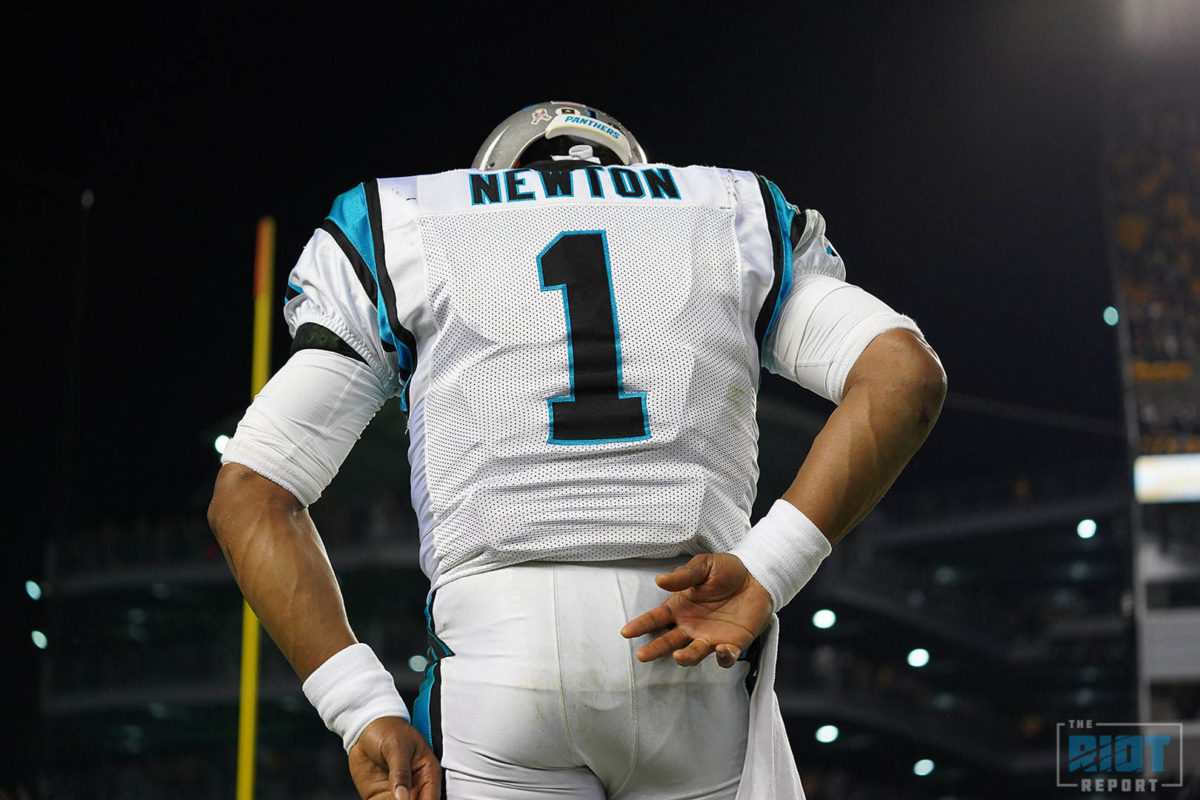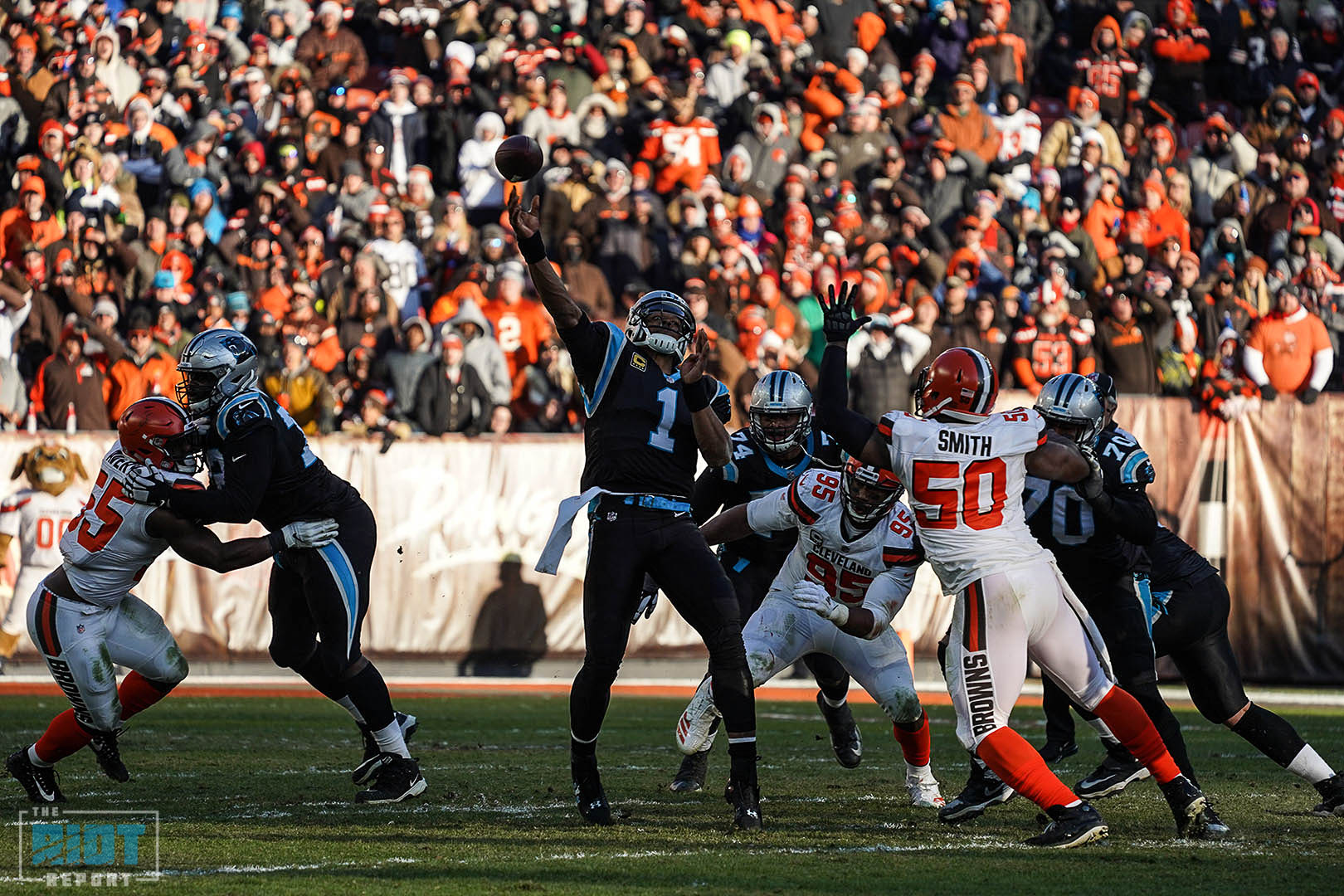Cam Newton is clearly hurt.
If you are unsure about this, I recommend you rewatch Sunday’s game and make a note of every time he either throws the ball into the ground or underthrows a receiver on a vertical route – I counted nine. While Cam has obviously missed throws in the past even when healthy, these have tended to be high misses, he has never been the guy that short-hops it to receivers on outside throws, let alone over the middle.
If you are still unsure, despite the grimaces and the missed practices and ceding to Taylor Heinicke on Hail Marys – then this piece is probably not something you’re interested in. But let’s work under the assumption that he is hurt, that it’s his shoulder and that it is related to the shoulder injury that he has been struggling with for varying degrees for the past two years – especially since Cam hinted himself last week that he would likely need shoulder surgery after the season. With that out the way, what are the options for Cam and the Panthers going forward?
Let’s take out the option of Cam being shut down for the season; with the Panthers still in the hunt for a playoff spot – no matter how slim of a chance – let’s assume the Panthers franchise quarterback will still be out there until the door is shut mathematically; Rivera has already confirmed that Newton will be starting on Monday night against the Saints.
Needless to say, I’m not a doctor, but I spoke to a member of an NFL training staff – not the Panthers – and while this opinion is given without having consulted Newton’s medical records, the opinions are based on what was reported about his surgery in 2017 and the symptoms he has exhibited since then.
So Surgery?
When asked last week if he would require the second shoulder surgery of his career this offseason, Cam was coy.
“I don’t know – I can’t confirm or deny, but at the end of the day, I’m healthy enough to play. I’m not going to let nothing hold me back from being able to go out and help my team; I definitely don’t want to be a liability, I just want to make sure that I’m putting myself and this team in the best situation to win football games,” said Newton, who hasn’t practiced on a Wednesday since Week 7.
“I’m pretty oblivious to the recovery time and I would not have expected me to still have things that are lingering from that, but at the end of the day it is what it is. It’s about managing pain and understanding that you have a job to do, a responsibility to put your best product out there on the field and I want to do that for not only myself, but for this team.”
So why surgery instead of rest and rehab?
The opinion on whether surgery is required to address rotator cuff (RTC) injuries is somewhat divided – with growing support emerging for non-surgical treatments. There are exceptions to this, as any injury involving a full thickness tear or RTC muscles will require surgery in order to reattach the muscles; it should be noted that if this was the current situation for Cam, it is unlikely he would be able to throw at all – but given the downsides of surgery, the Panthers would likely be best advised to avoid surgery if at all possible.
In terms of the downsides of surgery, there are three which should be immediately considered: the increased recovery period, the increased risk of osteoarthritis and the possibility of soft tissue damage. Osteoarthritis is obviously more of a concern for the player’s long-term health than something that is likely to make an immediate impact, but it would be irresponsible not to take it into account. A longer recovery period is obviously not desirable, but given the importance of Cam Newton to the franchise, the Panthers would be wise to make the more long-term decision if a longer period away is needed – Andrew Luck missed all of the 2017 season but appears poised to set career highs in most passing categories in 2018. Soft tissue damage, however, can be extremely serious and would likely limit Newton’s ability to perform at a high level going forward.
Without knowing the full details of Cam’s injury, it is impossible to say whether he will definitely need surgery this offseason, but what is important to note is that surgery is not a definite necessity; there are other options available should the damage not involve a full muscle tear.




